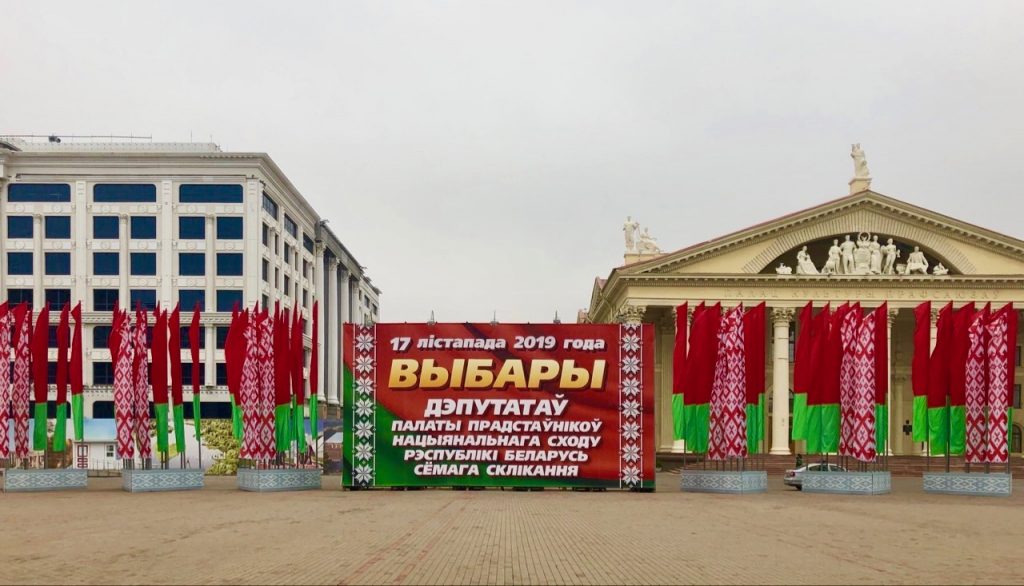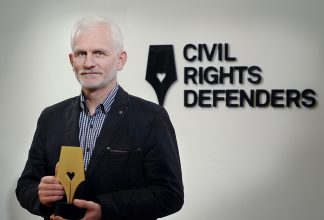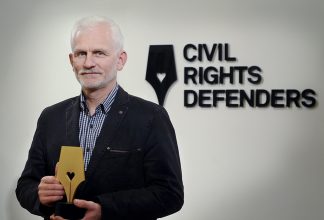Belarus Elections: No Signs of Democratisation

On 17 November, parliamentary elections will be held in Belarus. They will be followed by presidential elections next year. Civil Rights Defenders recently spoke to two human rights defenders about the upcoming elections and the human rights situation in the country. Their names will not be made public out of fear of reprisal from the authorities.
Since Lukashenka came to power in 1994, no elections in Belarus have been considered free and fair by the international community. Nothing seems to have changed ahead of the upcoming elections.
The early elections are considered unconstitutional
Members of parliament are elected for four years in Belarus and the last parliamentary elections were held in September 2016. The next elections were therefore expected to be held in the autumn of 2020, however in April this year Lukashenka announced that they would be brought forward and held one year earlier than expected.
“The President has violated the constitution. Early elections can only be held under certain circumstances specified in the constitution”, said one of the human rights defenders we spoke to.
The election campaign so far has been low key according to OSCE. Many aspects of the campaign are strictly regulated and only a few events have been organised. Parliamentary candidates are free to organise campaign events, but the right to public assembly is still restricted in the country. The state-owned media dominates both the broadcast and print media landscape.
Little has changed since previous elections
Civil and political rights are restricted in Belarus, and an overall environment of hostility towards dissident opinions remains. The international community has recommended that Belarus should reform its electoral legislation in line with international human rights standards many times.
“The same problems that human rights activists have highlighted before still remain; opposition candidates are silenced and struggle to get visibility, and state employees are used to help collect signatures for pro-government candidates”, said one of the human rights defenders.
“Usually there is liberalisation before the elections and repressions after in Belarus. And then you never know what exactly to expect. It is scary,” said the other human rights defender.
“Before the elections, the authorities often try to show the international community that they are on the path to democratisation. But as soon as dissenting voices grow strong and the authorities feel they are being challenged, theydo all they can to silence them,” said Goran Miletic, acting Eurasia Programme Director at Civil Rights Defenders.
Role of international community still important
Despite the hostile environment, human rights defenders in Belarus still hope for democracy in the country.
“I see hope for democracy in Belarus, but in a very distant future,” said one of the people we interviewed.
“The international community should in particular highlight the absence of free, transparent and democratic elections, and call on the Belarusian authorities to guarantee their citizens the opportunity to exercise their democratic rights. In severe situations, for example when the protests took place in spring 2017 and the authorities took extreme measures, the only thing that holds the authorities back is the assessment of these events by the international community,” said the other anonymous human rights defender.
In 2017, mass arrests took place during the nationwide protests against the unpopular “unemployment fee” and around 800 protesters were detained.
“In authoritarian countries, international observers are usually invited in order to legitimise the elections. We hope that they take this opportunity to not only assess the conduction of the election, but to also highlight the general restrictive environment in the country which makes it impossible to guarantee free and fair elections,” said Goran Miletic.
Often described as the “last dictator in Europe”, Lukashenka is the only post-Soviet president that Belarus has known. He has already announced that he will most likely run for re-election for the sixth time in next year’s presidential elections.


